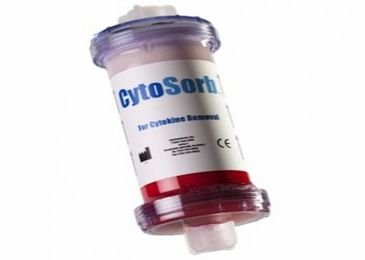Biocon markets CytoSorb in India
September 13, 2013 | Friday | News | By BioSpectrum Bureau
Biocon markets CytoSorb in India
CytoSorb - A first-in-class novel therapy for sepsis management
Biocon has entered into a strategic partnership with CytoSorbents Corp., having exclusive commercialization rights for CytoSorb in India and other emerging markets. However, the financial terms of the agreement were not disclosed.
Kiran Mazumdar Shaw, chairperson and managing director of Biocon said, "We believe our partnership with CytoSorbents will enable us to address the huge unmet need of sepsis management in India and emerging markets. CytoSorb is a 'first-in-class'therapy that can provide an effective solution to physicians to treat critically ill patients suffering from sepsis. This move reflects our commitment to bring differentiated products to India that will help address various healthcare challenges faced by millions of patients in our country."
According to Biocon, CytoSorb is a safe and effective extra-corporeal cytokine filter, designed to target prevention or treatment of organ failure, which is found to be the cause for half of all deaths in intensive care units (ICUs). When left unchecked, 'cytokine storm' caused by excessive cytokine production causes massive inflammation, organ failure and death in common life-threatening conditions such as sepsis, burn injury, trauma, lung injury, and pancreatitis.
"We are very pleased to enter into this initial agreement with Biocon on World Sepsis Day to bring our potentially life-saving therapy to the people of India and other emerging markets. Unlike any other previous approach, CytoSorb attacks sepsis from multiple angles by reducing cytokine storm and deadly bacterial toxins, and directing immune cells to target the infection while avoiding damage to otherwise healthy organs," said Dr Phillip Chan, chief executive officer and president of CytoSorbents.
CytoSorb is claimed to bear the CE Mark regulatory approval, and is clinically proven to control cytokine storm in critically-ill patients by reducing key cytokines in blood by 30-50 percent. It also works easily with standard dialysis machines used in hospitals, said the press release.
It is said that Biocon and CytoSorbents will initially focus on treating sepsis, which is the end result of an excessive immune response to an infection. By amalgamating Biocon's critical care antibiotics in treating the infection, which is compatible with CytoSorb therapy in modulating the immune response, the two companies are aiming to provide a holistic solution for sepsis management in the market.
Adds Mr Rakesh Bamzai, president marketing, Biocon, "CytoSorb is a safe and well-tolerated innovative therapy for managing cytokine storm in critically ill patients. Very high levels of cytokines are known to cause multiple organ failure, which is often life threatening. Through CytoSorb, we offer a promising treatment option to high risk patients in their fight against sepsis and other critical illnesses."
Severe sepsis and septic shock are considered to be the major causes of morbidity and mortality worldwide. It is also a leading cause of death in non-coronary ICUs and the 11th leading cause of death overall. India being the second most populated country in the world, more than one million estimated new cases of severe sepsis are treated in the Indian ICUs each year, accounting for one out of every four patients in the ICUs.
Mr Chris Cramer, vice president of business development, CytoSorbents, expressed, "This partnership has the potential to change the treatment of critical care illnesses such as sepsis, and we are confident that our work will lay the groundwork for an expanded partnership in the future."
According to a recent nationwide study of Indian Intensive Care Case Mix and Practice Patterns (INDICAPS) involving over 124 ICUs across 17 states in India, mortality was found to be as high as 46 percent in patients with septic shock and 42.2 percent overall in septic patients, compared with 17.8 percent mortality for ICU patients who did not develop sepsis.









